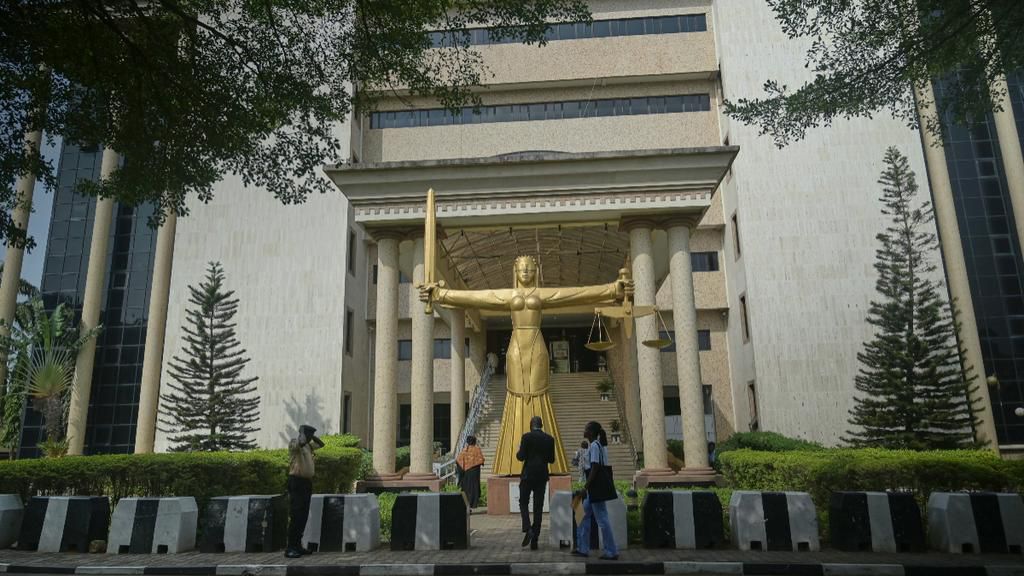AGF, CCB sued over inaction on alleged fraud by petroleum regulator’s chief

AGF, CCB Sued Over Alleged Inaction on Petroleum Regulator's Chief Amidst Fraud Allegations A lawsuit has been filed at the High Court of the Federal Capital Territory (FCT) against the Attorney-General of the Federation (AGF) and the Code of Conduct Bureau (CCB) for their alleged inaction regarding accusations of fraud against Ahmed Farouk, the Managing Director of the Nigerian Midstream and Downstream Petroleum Regulatory Authority (NMDPRA). The suit seeks to compel the AGF and CCB to investigate and prosecute Farouk for allegedly diverting over $5 million in public funds.
The plaintiffs, the Incorporated Trustees of Once Love Caring and Foundation, and Barrister Reuben Boma, are requesting a court order mandating the AGF and CCB to initiate a criminal investigation and impose appropriate sanctions on Farouk. The allegations center around the alleged use of public funds to finance the private education of his four children in foreign institutions.
Details of the Lawsuit Filed on July 16, 2025, by Barrister S. IhenseIhensenrkhian Jr., the application also calls for the CCB to commence necessary administrative proceedings against the NMDPRA chief. The suit, numbered FCT/HC/1311/117/744/25, names the AGF, CCB, and Farouk as the first, second, and third defendants, respectively.
According to court documents, the plaintiffs claim there are "alleged and credible media reports" indicating Farouk's involvement in "gross abuse of office running into millions of dollars."
Allegations of Embezzlement and Conflict of Interest The plaintiffs further allege that Farouk's actions constitute "embezzlement, misappropriation, and conflict of interest, contrary to the Code of Conduct for Public Officers." They expressed concerns that the alleged misconduct, if left uninvestigated and unprosecuted, could erode public trust in governance and the nation's anti-corruption efforts.
The lawsuit criticizes the CCB and the AGF for their perceived failure to act on the allegations, despite their public nature and severity.
Testing the Responsiveness of Anti-Corruption Institutions This case is anticipated to be a significant test of the responsiveness and effectiveness of Nigeria's anti-corruption institutions. The outcome could have far-reaching implications for public accountability and the fight against corruption in the country.
Expert Analysis: The Importance of Institutional Independence Dr. Fatima Hassan, a public policy analyst at the Centre for Governance Studies, emphasizes the critical role of institutional independence in combating corruption. "The CCB and the AGF must operate without fear or favor. Their actions in this case will be closely scrutinized and will either reinforce or undermine public confidence in their ability to hold public officials accountable," she stated. "A swift and impartial investigation is crucial, regardless of the individual involved."
Historical Context and Current Climate Nigeria has a long history of grappling with corruption, and successive administrations have pledged to tackle the issue. The establishment of institutions like the EFCC (Economic and Financial Crimes Commission) and the ICPC (Independent Corrupt Practices and Other Related Offences Commission) reflects the country's commitment, at least on paper, to fighting corruption. However, challenges remain, including political interference, inadequate funding, and a lack of capacity.
The current administration has also reiterated its commitment to fighting corruption. This case involving the NMDPRA chief provides an opportunity to demonstrate the government's seriousness in upholding the rule of law and ensuring accountability among public officials.
Legal Precedents and Potential Outcomes Similar cases in the past have yielded mixed results. Some have led to successful prosecutions and the recovery of stolen funds, while others have been stalled by legal technicalities or political interference. The outcome of this case will depend on the strength of the evidence presented, the independence of the judiciary, and the political will to pursue the matter to its conclusion.
The public will be closely watching the proceedings, as this case represents a crucial test of Nigeria's commitment to transparency and accountability in governance.
Originally sourced from: pulse Ng
